Socio-economics of farm businesses
Farm businesses are subject to a number of influencing factors. In addition to influences of the market economy, local conditions, environmental influences, animal health and family backgrounds and constellations create the framework for agricultural activities.
As part of our research, evaluation and consulting activities, we analyse and evaluate the social and economic aspects of farm businesses. We examine the embedding of farms in regional structures and their scope for action under given political and market conditions. For many years we have been specifically concerned with the promotion of individual investments in agriculture and with processing and marketing within the framework of the evaluation of rural development programmes. In addition to profitability calculations for individual branches of production and grassland management, we also carry out analyses of the financial and labour economic situation of farm businesses and farm succession as well as income diversification and regional sales markets.
Contact person at IfLS: Jörg Schramek (schramek[at]ifls.de, +49 (0) 69/9726683-14)
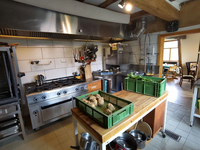
The German food system has a low level of self-sufficiency in many food sectors. The relevance of imports is correspondingly high in many areas and the resilience of the food system with regard to possible crises is low. However, ecological location...
Details »
In recent years, the number of farms with small flocks of laying hens (100 - 3,000 hens) has increased. This increase has been observed in both the organic and conventional sectors and logically also causes an increase in so-called dirty, cracked and...
Details »
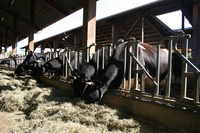
The price crises in various agricultural sectors ((mainly milk and pigs) in recent years have made it clear how weak the bargaining positions of producers of agricultural products are vis-à-vis the processing companies. Against this background,...
Details »
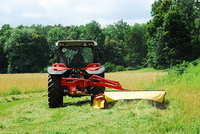
Traditional cultural landscapes usually have a high diversity of species and habitats. From an agricultural point of view, these are often in disadvantageous locations. On the one hand, this results in the social challenges of nature conservation and...
Details »
The project "Innovations for a Climate-Smart Agriculture " (InnoCSA) aims to promote sustainable agricultural practices that help farms adapt to climate change and reduce greenhouse gas emissions. The project produces three outputs:
Details »

In the 21st century, it is completely normal to have your food delivered from all over the world. People have become accustomed to the fact that their meat, fruit and vegetables, or even their cookies and drinks travel thousands of kilometres before...
Details »
"Growing or dying" - this has long been used to describe the outlook for farms. The economic pressure of global food markets means that farms either have to grow in order to remain competitive, or give up if farmers cannot realize economies of scale....
Details »

While European agriculture is facing an ageing population with transmission issues, a new generation of farmers is rising: young people with no agricultural certification and without a farming background. These new farmers are seeking to develop a...
Details »
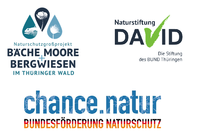
The UNESCO Biosphere Reserve Thüringer Wald is home to a diverse mosaic of beech and mixed mountain forests, mountain streams, moors and mountain meadows with rich biotic communities. To preserve and promote this habitat and species diversity,...
Details »

In the Mosel-Hunsrück-Nahe region, the nature conservation project "Ribbons of Life in Hunsrück" is planned. The project is supported by the districts of Birkenfeld, Bernkastel-Wittlich and Trier-Saarburg together with the Rhineland-Palatinate Nature...
Details »
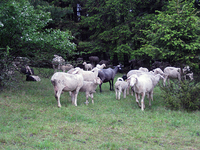
A maintenance and development plan (PEPL) for the conservation of the species-rich open-land biotopes and drift paths will be drawn up for the 8,500-hectare development area of the nature conservation project "New pastoral paths in the Palatinate...
Details »
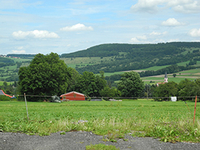
Species diverse Natura 2000 habitats of the bird sanctuary “Hessian Rhön”, i.e. mountain hay meadows and Nardus grasslands, represent habitats especially to meadow breeders such as whinchats, meadow pipits and common snipes. The LIFE-project “Hessian...
Details »
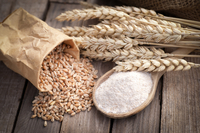
In Rhineland-Palatinate, investments in the processing and marketing of regional products have been supported since 2015. The measure is specifically intended for companies that process and market certified organic products and / or products with...
Details »
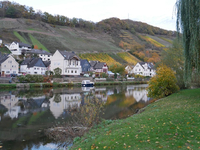
The local communities of Obernhof and Weinähr in Rhineland-Palatinate want to establish a citizen vineyard in the course of a land consolidation within the LEADER project, which will be cultivated both organically (Weinähr) and conventionally...
Details »










